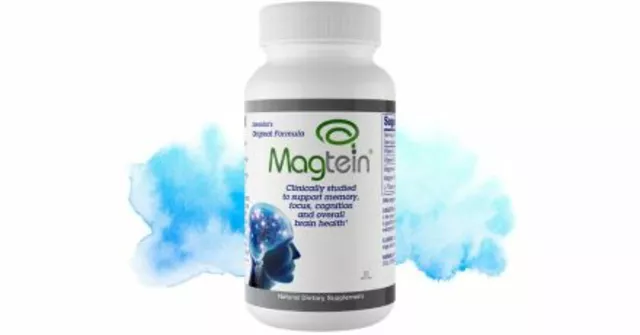Alzheimer's Disease is a debilitating condition afflicting millions worldwide. It begins silently, with slight memory lapses and confusion, gradually leading to severe cognitive decline. Despite extensive research, the exact causes remain elusive.
Recent studies, however, shed light on a potentially significant factor: inflammation. Chronic inflammation is known for its damaging effects on various body systems, and growing evidence suggests it plays a critical role in Alzheimer's as well.
Understanding how inflammation impacts the brain and contributes to Alzheimer’s symptoms could be key to developing more effective treatments. This article seeks to unravel the connection between inflammation and Alzheimer’s, exploring the underlying mechanisms, common inflammatory markers, potential triggers, and practical strategies to manage inflammation for better brain health.
- Understanding Alzheimer's Disease
- The Link Between Inflammation and Cognitive Decline
- Inflammatory Markers in the Brain
- Potential Triggers of Brain Inflammation
- Managing Inflammation for Brain Health
Understanding Alzheimer's Disease
Alzheimer's Disease is the most common cause of dementia among older adults, and can be distressing for both those experiencing it and their loved ones. Named after Dr. Alois Alzheimer, who first described it in 1906, the disease is marked by the gradual decline in cognitive function, memory loss, and changes in behavior and personality. Though it primarily affects people over the age of 65, it is not a normal part of aging.
The condition is characterized by the accumulation of abnormal protein deposits in the brain. Beta-amyloid plaques form outside neurons, while tau tangles develop inside neurons. These changes disrupt communication between nerve cells and trigger brain cell death. The progression of the disease varies from person to person, but it generally follows a pattern of mild, moderate, and severe stages.
In the early stages, individuals may have difficulty remembering recent events or the names of familiar people and places. As the disease advances, symptoms become more pronounced. Individuals may struggle with language, disorientation, mood swings, and even difficulty performing familiar tasks. In the severe stage, they may lose the ability to carry on a conversation, respond to the environment, or control movement.
Current statistics indicate that more than 6 million Americans are living with Alzheimer’s. This number is expected to rise significantly as the population ages. According to the Alzheimer’s Association, the disease is the sixth leading cause of death in the United States. Despite these alarming figures, Alzheimer's research has made significant strides in recent years.
“We now know that Alzheimer's disease is a complex interplay of genetic, lifestyle, and environmental factors,” says Dr. Maria Carrillo, Chief Science Officer at the Alzheimer’s Association. “This understanding opens new avenues for potential treatments and preventive measures.”
Scientists are continuously exploring the genetic components of Alzheimer's, identifying risk genes such as APOE-e4, which has been associated with increased risk of the disease. However, genetics alone do not determine Alzheimer's. Lifestyle factors like diet, exercise, and cognitive engagement, along with existing health conditions, also play crucial roles.
There are no definitive tests for Alzheimer's, making it a challenge to diagnose early. Doctors rely on a combination of medical history, physical exams, neurological assessments, and imaging studies to make a diagnosis. Biomarker tests, which can detect specific proteins in cerebrospinal fluid or blood, are being developed to improve early detection.
Treatment options for Alzheimer’s are limited and mainly focus on temporarily alleviating symptoms. Approved medications, such as cholinesterase inhibitors and memantine, help manage symptoms but do not stop the disease's progression. Researchers are also investigating the role of lifestyle interventions, such as a Mediterranean diet, physical activity, and cognitive training, in delaying onset or progression.
With an increase in awareness and funding for Alzheimer's research, there is hope that effective treatments and preventive strategies will emerge. The social and economic impact of Alzheimer’s is immense, underlining the importance of ongoing research and support for those affected by the disease.
The Link Between Inflammation and Cognitive Decline
Years of research have started to illuminate the role of inflammation in cognitive decline, particularly in relation to Alzheimer's Disease. Evidence suggests that chronic inflammation in the brain may contribute to the onset and progression of Alzheimer's. The brain, like other parts of the body, can experience inflammation, often as a response to injury or infection.
One theory is that inflammation damages brain cells over time, leading to the characteristic symptoms of Alzheimer's, such as memory loss and confusion. The process involves the release of inflammatory cytokines, toxic molecules that disrupt normal cell function. Prolonged exposure to these cytokines can kill neurons and alter brain structure.
Several studies have highlighted this connection. For example, researchers found elevated levels of inflammatory markers in the brains of Alzheimer’s patients, compared to those without the disease. This discovery has led to a deeper investigation into how inflammation might trigger or hasten cognitive decline.
One breakthrough in this area comes from a well-known study at Stanford University, where scientists found that blocking a specific protein involved in inflammation reduced Alzheimer's-like symptoms in mice. These findings are promising because they suggest possible paths for future therapies that could slow or even prevent the disease.
“Inflammation in the brain is like a silent fire that, over time, wreaks havoc on cognitive function. Addressing this inflammation could be key to combating Alzheimer's,” said Dr. Michel Goedert, a renowned Alzheimer's researcher.
The connection becomes clearer when considering the role of microglia, the brain’s immune cells. In a healthy brain, microglia act as housekeeping cells, cleaning up debris and harmful substances. But with age, these cells can become overactive, producing inflammatory chemicals that harm neurons instead of protecting them. This maladaptive response is now considered a major factor in the link between inflammation and cognitive decline.
Interestingly, lifestyle factors such as diet, exercise, and stress management are believed to influence inflammation levels in the body and brain. By adopting a healthy lifestyle, individuals may reduce their risk of inflammation-related diseases, including Alzheimer's.
Inflammatory Markers in the Brain
Inflammation in the brain is marked by a variety of factors that signal the body's natural immune response. When it comes to Alzheimer's disease, specific inflammatory markers have been identified, suggesting chronic inflammation's role in accelerating cognitive decline. Microglia, the brain's resident immune cells, become activated in response to perceived threats. While their goal is to protect, an overactive response can lead to prolonged inflammation, damaging neurons and their connections.
Studies show that one of the key markers of brain inflammation is interleukin-6 (IL-6), a protein produced by microglia and astrocytes. Elevated levels of IL-6 are linked with neurodegeneration and cognitive impairment in Alzheimer's patients. Another significant marker is tumor necrosis factor-alpha (TNF-alpha), which, despite its role in fighting infections, can become harmful when its production is unregulated. Elevated TNF-alpha levels are commonly found in the brains of Alzheimer's patients.
Additionally, amyloid-beta plaques—misfolded proteins characteristic of Alzheimer's—can trigger an inflammatory response. Microglia attempt to clear these plaques but often fall short, leading to a persistent inflammatory state. Interestingly, researchers found that individuals with chronic systemic inflammation might be at higher risk for developing Alzheimer's. Gareth Parry, a neurologist, once said, 'Inflammation may not be the root cause of Alzheimer's, but it acts as a major driver that accelerates disease progression.'
"It's becoming clear that chronic inflammation is an essential aspect, not just of Alzheimer's but of multiple neurodegenerative diseases." — Dr. Lisa B., Neuroscientist
Inflammation's role extends to oxidative stress, another feature tied to Alzheimer's pathology. Reactive oxygen species (ROS), by-products of normal cellular metabolism, can damage cells if not properly regulated. In an inflamed brain, there's an imbalance between ROS production and the body's ability to detoxify these harmful compounds. This oxidative stress further contributes to neuronal damage.
Beyond biochemical markers, imaging studies have also provided insights. PET scans have revealed increased uptake in areas of the brain with high inflammation levels. Such advances allow scientists to visualize inflammation's extent and progression in living patients, aiding in both diagnosis and monitoring treatment responses.
Understanding these markers provides a pathway to potential treatments targeting inflammatory processes. Research continues to explore anti-inflammatory drugs' effectiveness in slowing Alzheimer's progression. In essence, managing brain inflammation offers a promising direction for future therapies.
Inflammatory markers like IL-6 and TNF-alpha represent both a challenge and an opportunity. While they are indicators of underlying issues, they also offer targets for intervention. Combining anti-inflammatory approaches with other therapeutic strategies could enhance treatment efficacy, ultimately providing hope to those affected by Alzheimer's disease.
Recognizing the signs and implications of brain inflammation allows us to address one of Alzheimer's underlying mechanisms. As researchers better understand these markers, the potential for developing comprehensive treatments that target multiple aspects of the disease grows. We remain on the brink of breakthroughs that could change the landscape of Alzheimer’s care forever.
Potential Triggers of Brain Inflammation
Inflammation in the brain can be triggered by a variety of factors, some of which are more commonly encountered than others. One of the primary culprits is chronic stress. Prolonged stress causes the body to release stress hormones like cortisol, which in turn can lead to chronic inflammation. The constant release of these hormones can damage cells, including brain cells, and lead to significant inflammatory responses.
Another critical factor is infection. Certain infections, especially viral and bacterial ones, can invade the central nervous system. The body's immune response to these infections can result in inflammation, which, if persistent, may contribute to the development of neurodegenerative diseases like Alzheimer's. For instance, studies have shown a strong link between herpes simplex virus (HSV) infections and Alzheimer's Disease.
Interestingly, diet plays a crucial role in either mitigating or exacerbating brain inflammation. Diets high in refined sugars and unhealthy fats promote inflammation, whereas diets rich in antioxidants, like those found in fruits and vegetables, help combat it. Nutrient deficiencies, such as vitamin D and omega-3 fatty acids deficiencies, are also known to contribute to brain inflammation.
Genetic factors cannot be overlooked. Certain genes make individuals more susceptible to inflammation-related diseases. For instance, people with specific variations of the APOE gene are at higher risk of developing Alzheimer's, potentially due to a higher inflammatory response in their brains. Environmental factors, including exposure to pollutants like heavy metals and pesticides, can also trigger chronic inflammation in the brain.
Lastly, gut health significantly impacts brain health through the gut-brain axis. An imbalance in gut microbiota, often referred to as dysbiosis, leads to systemic inflammation, including in the brain. Recent research has highlighted the importance of maintaining a healthy gut to prevent neuroinflammatory conditions. Dr. John O'Keefe, a neuroscientist, once said:
"The state of your gut can profoundly influence the state of your brain."
In summary, several factors contribute to brain inflammation, with chronic stress, infection, diet, genetics, environmental exposures, and gut health being primary triggers. By better understanding and managing these factors, there is a hope to reduce the risk of Alzheimer's and other neuroinflammatory conditions.
Managing Inflammation for Brain Health
Managing inflammation is crucial for maintaining brain health and potentially slowing the progression of Alzheimer's Disease. Inflammation can be influenced by multiple factors, including diet, lifestyle, and medical treatments. Taking proactive steps to manage inflammation can make a significant difference.
One of the best-known strategies for reducing inflammation is following a healthy diet. The Mediterranean diet, rich in fruits, vegetables, whole grains, fish, and healthy fats, has been shown to reduce inflammation. Studies highlight that people who adhere to this diet have lower levels of inflammatory markers in their blood. Consuming foods with anti-inflammatory properties, such as fatty fish rich in omega-3 fatty acids, nuts, and olive oil, can significantly benefit brain health.
“Diet is one of the most important tools we have in combating chronic inflammation,” says Dr. Martha Clare Morris, a nutrition expert. “Nutritious eating habits can reduce inflammation and improve cognitive function.”
Exercise and Physical Activity
Regular physical activity is another essential factor in controlling inflammation. Exercise helps regulate the immune system and decrease the production of inflammatory molecules. Engaging in moderate activities like brisk walking, swimming, or cycling for at least 150 minutes per week can lower inflammation levels significantly. Not only does this bolster brain health, but it also improves overall well-being.
Stress Management
Chronic stress is known to elevate inflammation. Practices such as yoga, meditation, and mindfulness have been shown to reduce stress and, consequently, inflammation. Finding time each day to relax and manage stress can have positive outcomes on brain health. Engaging in hobbies, socializing, and ensuring adequate sleep are also vital components of a stress management plan.
Adequate Sleep
Sleep plays a critical role in brain health. Poor sleep quality can elevate inflammation levels and worsen cognitive function. Adults should aim for 7-9 hours of sleep per night to allow the brain to repair and rejuvenate. Creating a sleep-friendly environment without distractions and maintaining a regular sleep schedule is essential.
| Sleep Quality | Inflammation Level |
|---|---|
| Good | Low |
| Poor | High |
Medical Interventions
In some cases, medical interventions may be necessary to manage inflammation. Nonsteroidal anti-inflammatory drugs (NSAIDs) are commonly used, but they need to be taken under medical supervision due to potential side effects. Emerging research also focuses on drugs targeting specific inflammation pathways in the brain, offering hope for more precise treatments in the future.
Incorporating these strategies into daily life can help manage inflammation and support brain health, potentially influencing the course of Alzheimer's Disease. It's essential to consult healthcare professionals when making significant lifestyle changes or starting new treatments to ensure they are safe and effective.








